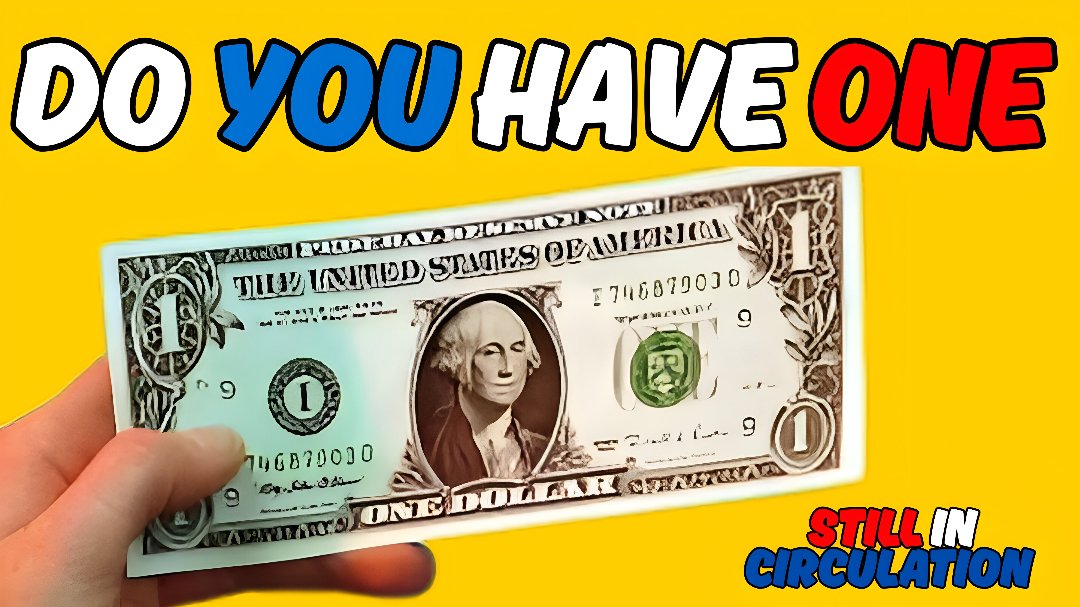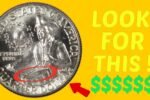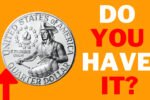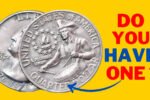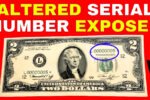Dollar Bill Jackpot : Think a dollar can’t go far these days? Think again. A rare $1 bill recently caught the attention of collectors—and could be worth thousands, even tens of thousands, depending on a few surprising details. If you’ve ever dismissed a crumpled George Washington note as pocket change, it’s time to take a closer look. That humble dollar might just be your jackpot.
The Secret’s in the Serial Number (and More)
What transforms an ordinary $1 bill into a high-value collector’s item? It’s not just age or condition—it’s often the serial number, printing errors, or a combination of both. Collectors pay serious money for unusual notes with very specific traits, and some of these prized bills are still floating around in circulation.
Recently, rare $1 bills with fancy or misprinted serial numbers have sold for $5,000 to over $15,000 at auction—and some experts estimate that certain examples could eventually top $50,000 or more as demand increases.
Top Dollar Bill Features That Could Make You Rich
Here’s what collectors are hunting for on $1 bills:
Fancy Serial Numbers
These are serial numbers with unique or symmetrical patterns. Look for:
-
Low serial numbers (00000001 to 00000100)
-
Solid numbers (e.g., 77777777)
-
Radar notes (e.g., 12344321)
-
Ladders (e.g., 12345678 or 87654321)
-
Repeaters or super repeaters (e.g., 12121212 or 12341234)
-
Binary numbers (e.g., 01010101)
-
Birthday notes (e.g., 07041976)
Printing Errors
These are often far more valuable and much rarer than fancy serials:
-
Mismatched serial numbers (numbers differ on each side)
-
Inverted seals
-
Off-center printing
-
Fold-over errors
-
Blank back or missing elements
-
Double or duplicate serial numbers (known as “duplicated notes”)
Star Notes
These are replacement notes printed when a mistake is made during production. They have a star symbol at the end of the serial number. Some rare series or low print runs of star notes can command huge premiums.
Real-Life Jackpot: How a $1 Bill Made Someone Thousands
In one notable example, a woman in Florida found a $1 bill with mismatched serial numbers in her change from a convenience store. She listed it online for a few hundred dollars, only to discover it was one of only six known examples. After authentication and appraisal, the note sold at auction for over $15,000.
Another collector recently paid nearly $3,000 for a 1981 $1 bill with a perfect ladder serial number.
How to Check Your $1 Bills
Want to see if your wallet is hiding a winner? Follow these steps:
-
Locate the serial number – Found on the front, top right and bottom left.
-
Look for patterns – Use a serial number guide or database (like CoolSerialNumbers.com or MyCurrencyCollection.com).
-
Inspect for errors – Compare both serial numbers, look at seal placement, and check printing alignment.
-
Check for a star – If there’s a star at the end of the serial, it’s a replacement note.
-
Handle with care – If you think it’s rare, protect it from damage and get it evaluated.
Where to Sell Rare $1 Bills
If you find something special, you have a few good options:
-
Auction Houses: Like Heritage Auctions or Stack’s Bowers
-
Online Marketplaces: eBay, with photos and a clear description
-
Currency Dealers: Local or online numismatic experts
-
Grading Services: PMG or PCGS can certify and increase its resale value
Final Thoughts: Don’t Underestimate the Dollar
While most $1 bills are only worth a buck, a select few are worth thousands. The key is in the details—serial numbers, errors, and condition can turn your everyday cash into a collector’s treasure.
So next time someone hands you change, take a closer look. Your path to a dollar bill jackpot could be right in your wallet.
Pro Tip: Ask for fresh $1 bills at the bank or request full straps (100-note packs). Newer notes often hold more uniformity and are easier to spot errors or patterns in. Keep your eyes open—your next dollar might just change your life.
